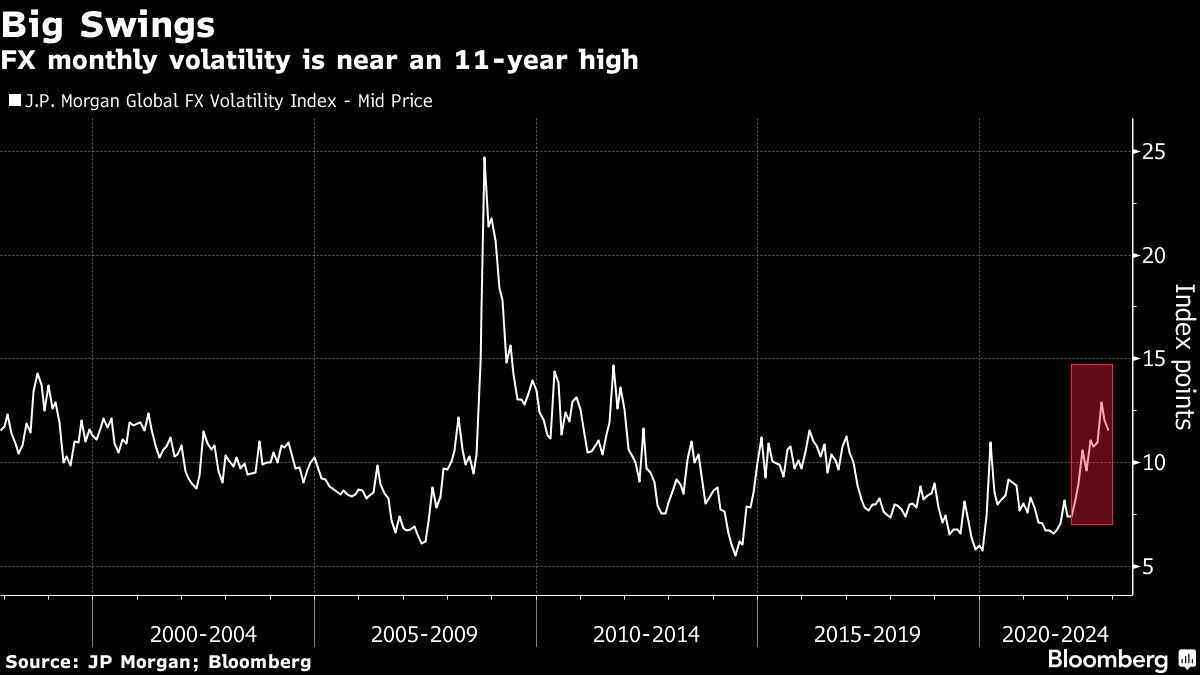(Bloomberg) -- A new currency trading algorithm developed by a Dutch investor threatens to wrest away millions of euros of fees from investment banks
(Bloomberg) — A new currency trading algorithm developed by a Dutch investor threatens to wrest away millions of euros of fees from investment banks if it gains traction in the pension industry.
Most Read from Bloomberg
MN Investment Management, which developed the program and has been using it since the second quarter, wants to share the technology and pool its data with pension funds, as well as jointly develop an algo trading tool.
“That would potentially have a big impact on markets,” Liakos Papapoulos, a senior investment manager at the treasury of MN, said in an interview. “From a wider pension fund community angle we are talking millions of dollars of savings.”
The move has the potential to drain profits from Wall Street dealers that have just booked their best third quarter ever on currencies and fixed income as volatility roared back. In Europe, Deutsche Bank AG saw revenue from fixed income and currencies trading jump 38% to €2.2 billion ($2.3 billion) in the third quarter, beating most of the big US investment banks and exceeding analysts’ estimates.
Read more: Wall Street’s Rates, FX Traders Save Quarter With Revenue Surge
Pensions funds trade billions of dollars worth of foreign exchange each year in spot and swap markets — not for profit but to tailor client portfolios. These activities generate large quantities of foreign currency transactions, the bulk of which is passed on to banks to execute.
MN’s execution algorithm’s earns money from currency trades rather than pay an implicit fee.
At first, when Papapoulos started telling people about it, they were incredulous. Now his desk has reaped enough savings — he declined to say how much — to hire two quants to work on the newly formed Algo Competence Center.
“Everyone is sitting on their own island, working on the exact same issues,” Papapoulos said in an interview. “This is basically part of our global outreach to the pension peer community to see, ‘guys what are you working on, can we work together, see what the goals are and can we learn from each other?’”
Papapoulos hopes wider adoption will save millions of euros in foreign exchange execution costs for the industry.
Still, breaking the stranglehold currency dealers have over the market may be too lofty a goal, according to Gaurav Patankar, head of alternative investments and manager research at Bloomberg Intelligence.
“Commonality of purpose is great, but banks have the infrastructure, scope and platforms to defend their market share,” he said.
‘Mutual Research’
At the same time, algorithms in currency trading are an untapped resource that could give the pension industry a competitive edge. Only 22% of trades are executed through such tools, compared with 46% in stock markets, consultancy Greenwich Coalition said earlier this year. The same study noted that while algorithmic trading has become “nearly ubiquitous” among professional equity traders, only 37% of US and European market participants use algos in currencies markets.
MN and another Dutch pension investor, PGGM Investments, are already sharing certain non-confidential data and research with eachother.
“We are all always struggling with resources and that’s the power of this project is that if we don’t have enough resources internally, hey let’s see if we can share it,” Tjerk Methorst, a senior trader at PGGM, said in an interview. “Where it really makes an impact is doing mutual research and mutual data. Otherwise I would be doing it on my own and Liakos would be doing it on his own.”
PGGM and MN are among the largest pension investors in Europe. The not-for-profit cooperative fund service providers oversee €231 billion and €136 billion respectively for 6.4 million savers who are steel, technical and metal workers, as well as maritime, health and welfare sector employees.
In the future, they hope to extend the collaboration to asset classes beyond currencies.
“If you want to dream big, we predict that this might actually be the start of an open source algo for the pension fund community,” Papapoulos said.
(Updates with description of MN, PGGM as non-profits in 15th paragraph. An earlier version of the story corrected their characterizations as funds.)
Most Read from Bloomberg Businessweek
©2022 Bloomberg L.P.
news.google.com
